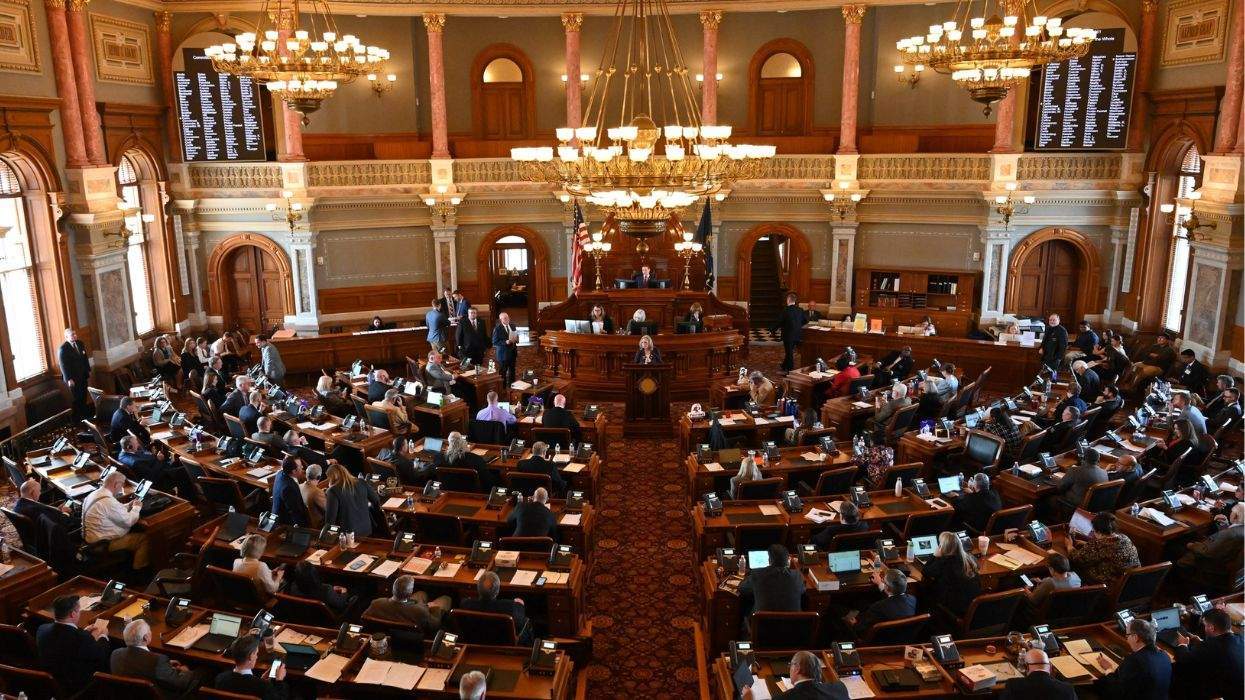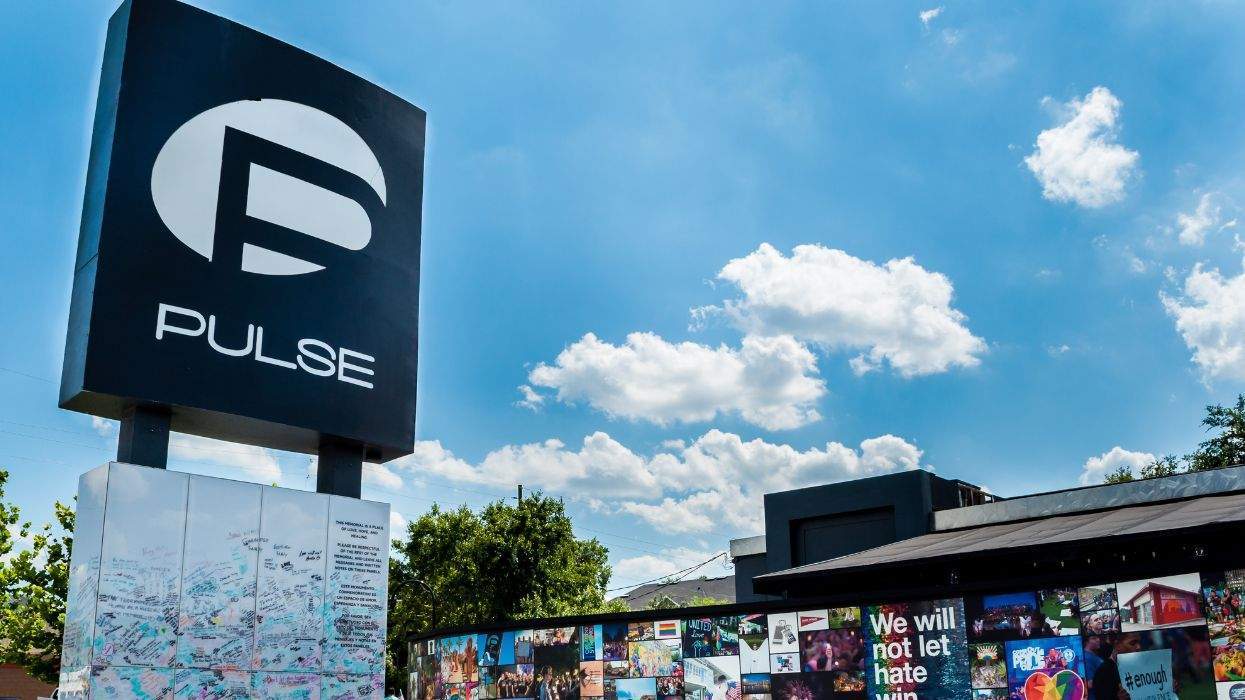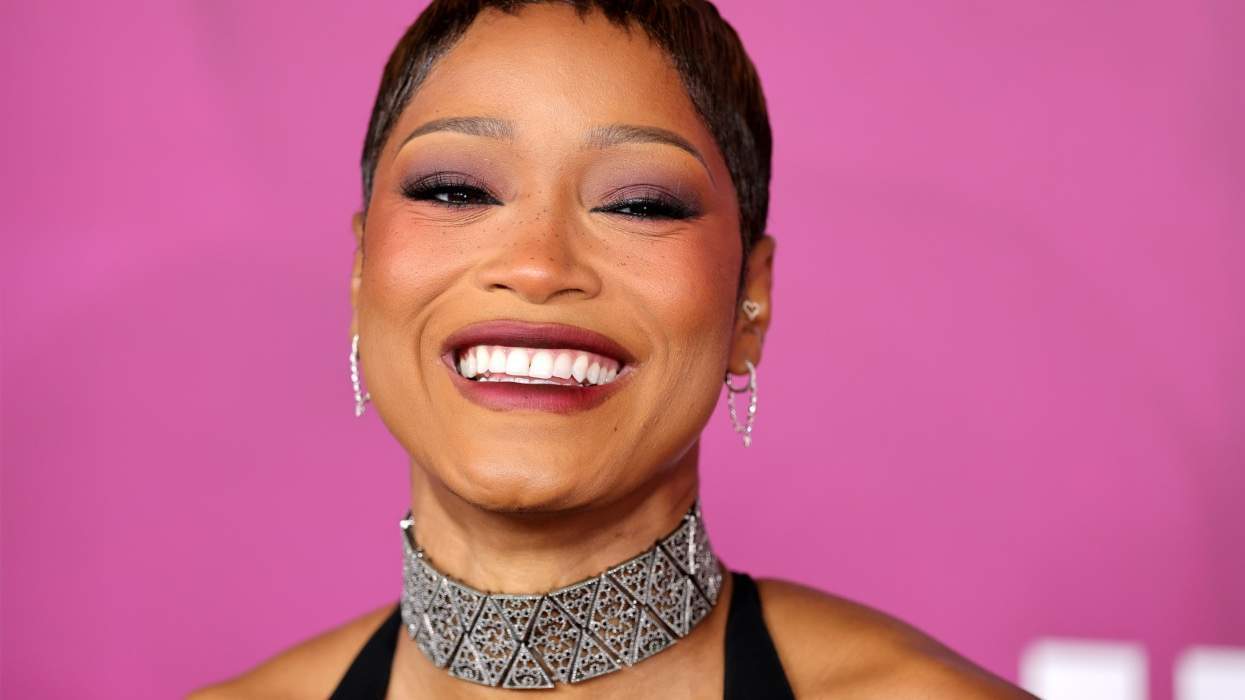Tomorrow, Democratic presidential candidates will convene in Cedar Rapids, Iowa, to discuss the challenges facing LGBTQ people and the candidates' plans to address those challenges if elected president. Not only is Iowa the first state to hold caucuses in the presidential election cycle, hosting an LGBTQ-focused forum in what many dismissively refer to as a "flyover state" is important for another reason: despite the stereotypes that LGBTQ people mainly live in big cities and on the coasts, an estimated 3 million to 4 million LGBTQ people live in rural parts of the country, and a majority of LGBTQ people reside in the Midwest and the South. So it's more than fitting that a forum on the diverse range of LGBTQ experiences and challenges in the United States taking place in a part of the country that's often overlooked, and in a region where many states lack critical nondiscrimination protections.
People of color are also often overlooked in national narratives, especially in conversations about rural America and the LGBTQ community. Yet more than 10 million people of color live in rural America, and people of color are significantly more likely than white people to identify as LGBTQ. In fact, people of color make up roughly 42 percent of the LGBT population, compared to 36 percent of the national population.
That's why today, as part of our Where We Call Home series focused on LGBTQ people and rural America, the Movement Advancement Project released a new report focused on LGBTQ people of color in rural America. Too often, the images coming from rural America are only straight, white, conservative men gazing over cornfields. Yet LGBTQ people of color live in rural communities too -- and like all rural residents, they may be farmers, but they may also be engineers or teachers or small-business owners. They make homes in rural communities because it's where their parents and grandparents have lived for generations, where they find community and choose to raise a family, and where they find connection to the land. And just like their neighbors, the draw of rural living for many LGBTQ people of color provides a better way of life, far from the hustle and bustle of urban settings and cities.
Unfortunately, LGBTQ people of color in rural areas are also especially vulnerable to discrimination. Rural states are less likely than majority urban states to have vital nondiscrimination protections and are more likely to have harmful, discriminatory laws. For example, rural states have functioned as ground zero for harmful religious exemptions laws, which allow critical service providers -- from doctors to federally funded homeless shelters to food banks to taxpayer-funded child welfare agencies to senior living facilities -- to refuse to serve certain groups of people citing moral or religious beliefs. What's more, rural states with worse LGBTQ policies also have higher populations of people of color: in rural states with religious exemptions laws, for example, an average of 30 percent of the population are people of color. In rural states without religious exemptions, only 21 percent of the population are people of color. It should come as no surprise then that many LGBTQ people of color in rural America often describe their love for their home on one hand, and the fear and actual experiences of discrimination on the other.
Challenges seen across rural America can also profoundly impact LGBTQ people of color. For example, hospitals and schools have closed in rural communities at an alarming rate: since 2005, over 155 rural hospitals have closed, with a majority of these closures occurring in the rural South despite the prevalence of the opioid epidemic and the region's higher rates of HIV diagnoses -- especially among LGBTQ people and people of color. While a scarcity in providers impacts all rural residents, LGBTQ people and people of color in rural areas are particularly impacted: if an LGBTQ person of color experiences discrimination based on their race, ethnicity, or because they are LGBTQ, they may have not be able to find an alternative provider that will accept them.
While Democratic presidential candidates will gather in Iowa to focus on issues specific to LGBTQ people, it's important to remember that LGBTQ people and their families are part of every single geographic region in America. Whether living on the coast or in the heartland of America, it's critical to understand the ways in which policies in Washington, D.C., in the states, and in local communities have the power to deepen inequalities or to strengthen all our communites.
Logan Casey is a policy researcher at the Movement Advancement Project and Darren Arquero is a communications specialist at the organization. Find out about their work here.















